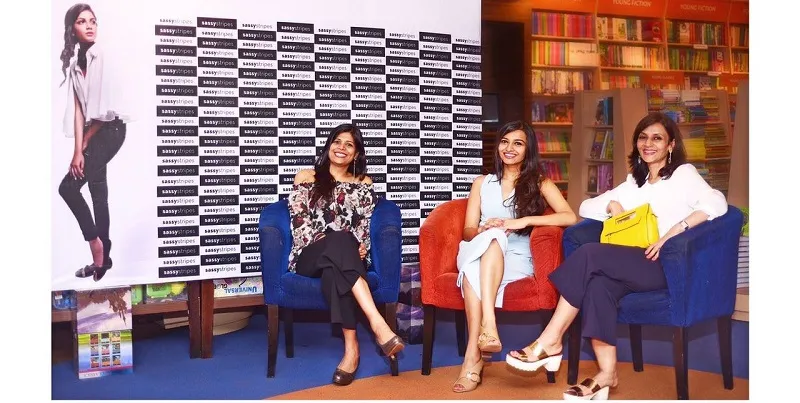Sassy Stripes: Your luxury private label
Three Kolkata women are betting big on clothing made from Chinese fabric.
Kolkata is best known for its traders, who churn out inventory and cash on a daily basis. Seldom do you hear much about businesses other than those in trading or manufacturing. So when someone says ‘fashion’, the mind instinctively wanders to South Mumbai, Delhi and Bengaluru — Kolkata seems as remote from the world of fashion as Timbuktu is from Bengaluru.
But three women are on the road to changing this. They are combining trading, manufacturing and retailing on their technology stack to bring luxury clothing to Indian women. And like everything else in life, it starts with a cup of tea.

One evening, Karishma Avalani, Monica Khumbat and Pooja Pansari, who had earlier met through family friends, got talking about becoming entrepreneurs. Monica was a 46-year-old nutritionist, Pooja a 38-year-old who ran a real estate company and Karishma was a 25-year-old brimming with ideas. The three had one thing in common, though — they loved women’s style. But they were concerned that luxury designs were not available at affordable prices. Since they came from business families, they decided to start a platform that sourced, manufactured and designed clothing.
So in late 2015, they gave up their day jobs and went about registering the business. They began by outsourcing the technology, while simultaneously meeting distributors and manufacturers. In their initial three rounds of meetings, they decided to source material — like rayon, cotton, spandex and scuba — from China and work with four manufacturers. The idea was to create fast fashion in the mould of Mango and Zara, with fast inventory turns and new styles every month.
Creating a company
Karishma, co-founder of Sassy Stripes, says,
“We have kept our costs low and focused on getting the product strategy right.”
The three of them have collectively invested less than Rs 50 lakh in the business.
To get people to notice the brand, the trio registered in apparel exhibitions across India. They sold their designs in cities like Jaipur, Chandigarh and Hyderabad. With all the data from the customer feedback at exhibitions, the brand was launched on November 1 with a website play. “The first three months have seen quite a few orders, thanks to our affordable pricing,” says Karishma.
The business will need heavy investment considering how the platform controls the buying and selling of the product. Currently, it has over 200 styles and around 24 SKUs (stock keeping units). Eventually, the company hopes to learn from its online model and branch out into offline stores. This model was followed by Universal Sportsbiz Private Limited (USPL), which now plans to open more than 100 brick & mortar stores. Sassy Stripes plans to, by the end of the year, focus on expansion as a shop-in-shop in large format stores like Central, LifeStyle and Shoppers Stop. Says Karishma,
“By next year, we want to raise a large round of funding. But for now, we are learning about the buying habits of consumers and the styles that they like.”
However, one must be very careful about expansion, particularly in an industry such as this. It requires fund raising to the tune of at least $10 million to build the business, and rentals can destroy valuations if sales do not go up. However, the one thing that can grow steadily is the online platform; unfortunately, the online model needs discovery, and enormous amounts of money will have to be spent on marketing the platform. The other easier option is to sell the brand on Myntra, a platform which has a significant mindshare in India.
“Retail works on very thin margins, but apparel is a category that is always priced more than five times the production cost,” says Prem Kumar, founder of SnapBizz, a technology and retail aggregation company.
The money
The business model of apparel retail works on high margins, but it requires volumes to make money, and with expenses, the cost of running the business can burn cash. But the opportunity exists; according to the Indian Brand Equity Foundation, the apparel industry will be a $141 billion industry by 2020, and there is room for more startups. For now, the largest startup in the fashion retail brand play is USPL.
“There is a dearth of young brands in India, and I see many startups betting on the brand play,” says Harminder Sahni, founder of Wazir Advisors, a retail consulting company.
For now, Karishma, Monica and Pooja are busy getting their designs right. If anyone is up for a ruffled off-shoulder top or a blue swing dress, then swing by Sassy Stripes, an online platform that will expand nationally this year.







